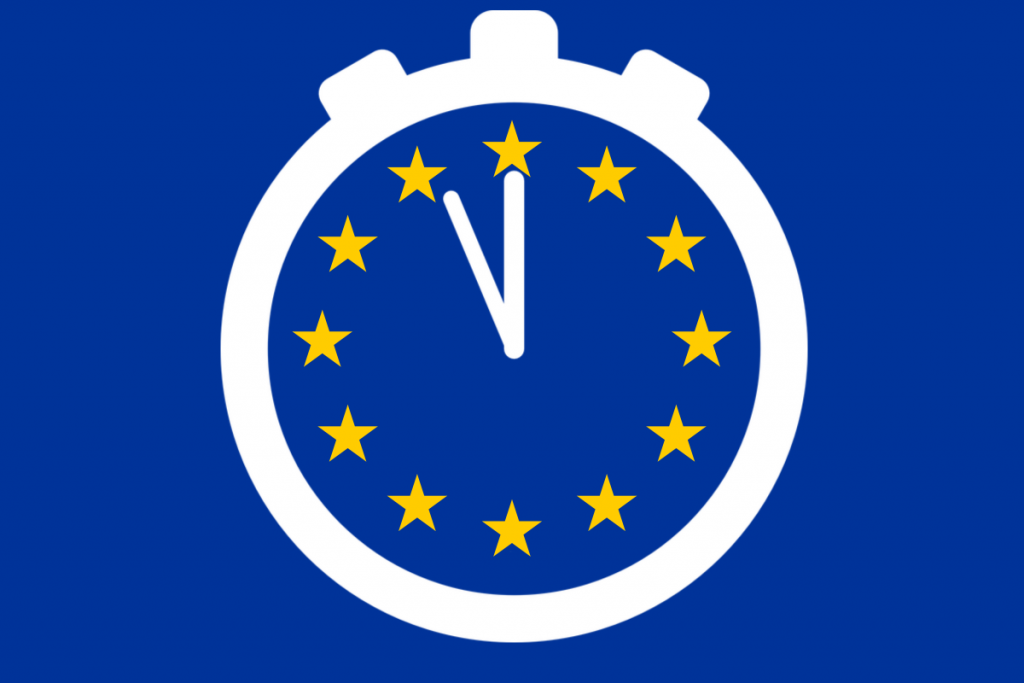The former British diplomat Lord Kerr had never imagined the United Kingdom would leave the European Union when he drafted the text of Article 50 in 2003. The withdrawal clause of the EU Treaty was designed to demonstrate withdrawing members would not be held hostage by the EU, or, in an extreme case, if a member state was to fall under a dictatorship. Nevertheless, by signing the Article 50 letter notifying the UK’s intention to withdraw from the EU, the British Prime Minister will officially begin an unprecedented and intense negotiation process. From this point, the parties will have two years – in reality, only 15 to 18 months – to reach an agreement before the EU treaties cease to apply to the UK.
Short Term
Following the Article 50 letter, we will have to wait months for the real negotiations to start. But, within 48 hours of receiving the letter, the President of the European Council, Donald Tusk, will issue a short response on behalf of the EU and begin discussions on negotiating guidelines. The guidelines will list a series of key principles (e.g. no cherry-picking), the priority issues the EU intends to settle before all else (the right of the EU nationals, a financial settlement, the Irish land border) and the sequence of the talks. The twenty-seven heads of state and governments should adopt the final text during an extraordinary summit on 29 April. The stance taken in this document will give is an early sense of whether the EU will negotiate in good faith, or whether the aim will be to give the UK a bloody nose.
In May, France will elect its new President. The most likely outcome is that the French government will maintain its pro-European line and be tough on Britain. Across the channel, the next Queen’s Speech in May or June will include a repeal of the European Communities Act of 1972 and incorporate EU law into domestic law.
Negotiations will be opened around June by chief negotiator for the European Commission, the former French minister Michel Barnier. It will be organised in rounds, each made up of one week of actual negotiations, to be followed by three weeks of preparation and coordination by the “Sherpas” (the representatives of the heads state and government) and officials. The European Parliament holds no formal role in the negotiations, but that won’t stop it, led by parliamentary lead negotiator Guy Verhofstadt, attempting to influence the course of the negotiations. The European Parliament will have to approve the final agreement, giving them de facto veto power.
Mid Term
The first round of negotiation should take place before August. As with every divorce, it should kick off with money and the children; in this case a potential divorce bill of £50 billion and the 3 million EU citizens living in the UK, plus the 1.2 million British nationals living in the EU. Officials in Brussels have repeatedly said that any talks on a future relationship must come after a basic agreement on those two fundamental issues. By then, pressure will be high and damaging declarations could be made on both sides. The main risk here is that the UK walks away, arguing that there is no legal obligation to pay anything if there is no deal.
German federal elections in September could also disrupt events. Long coalition negotiations – a negotiation within a negotiation – could effectively halt Brexit negotiations, and if Social Democrat Martin Schulz was to win, the new German government would likely adopt a rigid position for the sake of the European integration. Angela Merkel has a reputation for toughness, but is cool-headed and pragmatic.
Long Term
By the end of 2017 we should have a pretty good idea of what negotiations can achieve. The British government will have to prepare markets and the devolved nations for the outcome, whether it’s a good deal, no deal, or a drawn out transitional process.
To avoid a cliff edge in the case of no deal or just to get through an endless ratification process, a transition deal will almost certainly be needed. Britain had a seven-year transition upon entering the European Community in 1973, so there is precedent for easing a member state into their change in status. Hardline Brexiteers, however, will surely strongly oppose this approach. Assuming no election is held before the end of the negotiations in 2019, her small majority in Parliament leaves the Prime Minister vulnerable to the hardline demands from the right of her party.
If the negotiations fail, the UK will probably face a major constitutional crisis and fall back on the World Trade Organization rules. Britain will have control over its borders, but it’ll also control the now necessary customs controls and tariffs. In such a cliff-edge scenario, the UK Treasury forecast a 6% drop in GDP and traders expect a further 10% drop in the value of Sterling. The EU won’t be thrilled either, losing a major trade partner abruptly and having to fill gaps in the EU budget.





